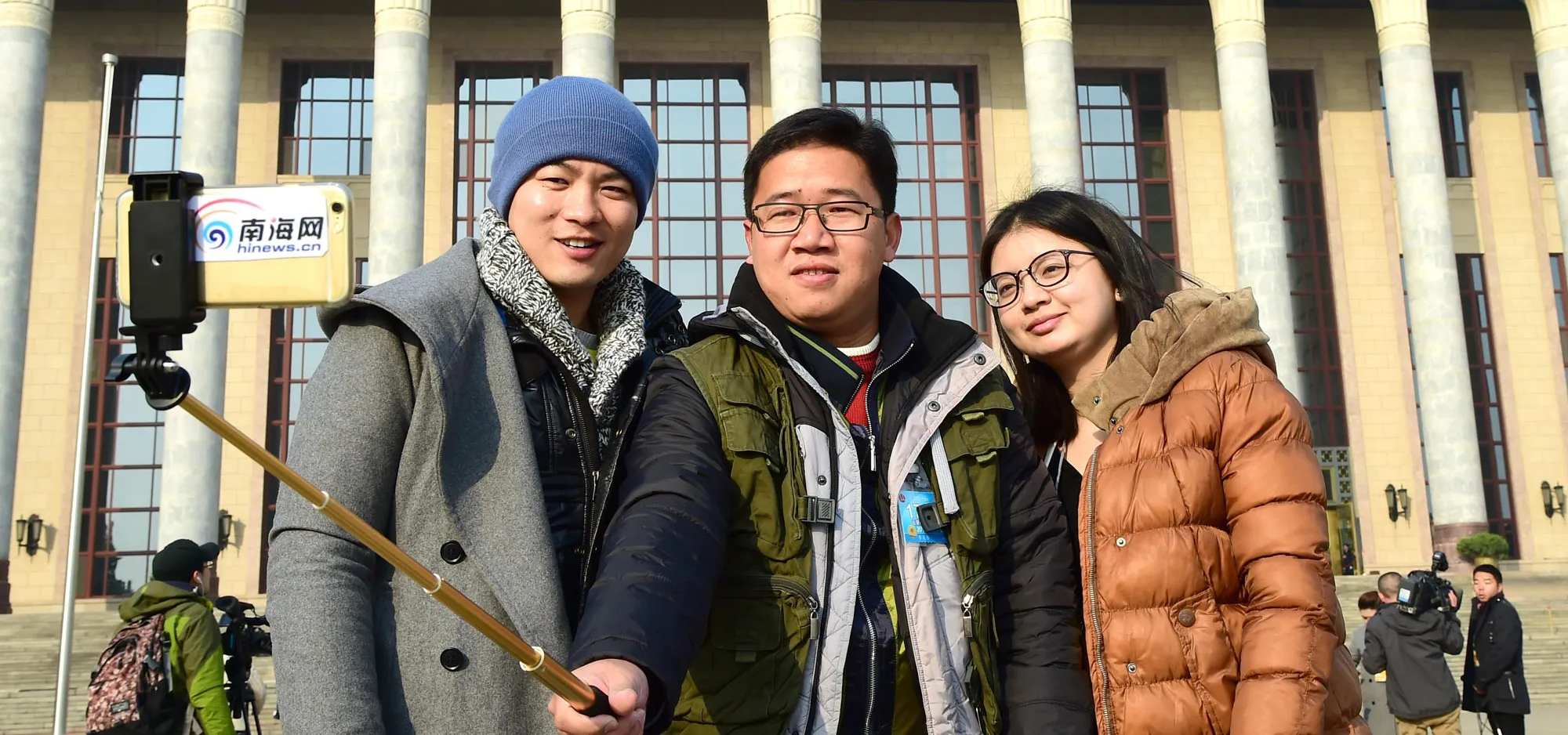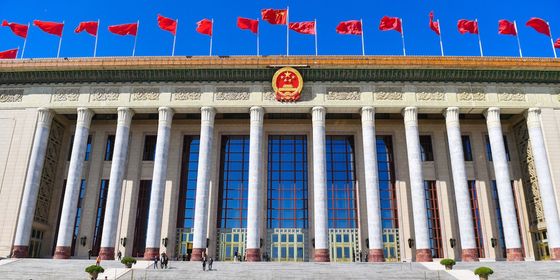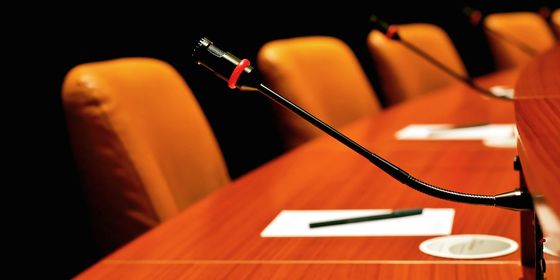The press conferences at China’s “Two Sessions” are not open forums by any means, but they do make for pretty good drama
Tomorrow is the last day to apply for press passes to cover China’s legislative meetings known as the “Two Sessions,” which will take place in March in the capital this year. To all you budding reporters out there who were hoping to get that (as The New York Times puts it) “rare access to officials, both in organized news conferences and in impromptu stand-ups”: if you didn’t manage to get your application in…well, you probably aren’t missing much.
To backtrack, the “Two Sessions” or “Two Meetings” refers the annual meetings of the National People’s Congress (NPC) and the National Committee of the People’s Political Consultative Congress (CPPCC). The former is the largest legislative body in the world, comprising nearly 3,000 delegates serving five-year terms, who are elected by delegates of provincial people’s congresses who are in turn elected by local congresses and so on (at the lowest level congress the delegates are elected directly, with some caveats as to what “elected” means). Officially, they make the laws of the country and elect senior leaders; in practice, they mostly approve laws and leadership appointments drawn up at somewhat less open meetings months in advance, occasionally making some symbolic gestures of disapproval by abstaining from the vote or resigning.
The latter meeting consists of representatives from various fields—arts, business—as well as delegates from China’s other political parties and interest groups like the All-China Women’s Federation. They review policies and make suggestions about the long-term direction of the country, but have no policymaking power.
Apart from giving nod to the idea of consultative policymaking, what really gets the state enthused during the Two Sessions period is the gesture of openness it can extend to journalists within China, and especially to foreign journalists. Did you think that the CGTN headline cited in at the start of this piece misleadingly implied that China was going to start allowing journalists to cover political meetings of all kinds? That’s more or less state media’s standard framing of this issue, as each year without fail, it will publish something suggesting that journalists’ access to officials during the Two Meetings is a milestone achievement in China’s media openness, whether it’s simply to say that more journalists than ever are covering the event, or crow over a country that is sending their journalists to the meetings for the first time.
Actually, though? When references to the Two Sessions’ press conferences actually make it into the foreign press at all (which is very rarely, for reasons you’ll soon see) it’s usually so that the beleaguered journalist can bemoan how orchestrated, controlled, and hence mind-numbingly boring the proceedings can be. Highlights from past conferences include “surprise” questions from foreign “press” representatives that turned out to have been planted by state media and answers have that droned on for better parts of the hour but without, amazingly, straying from any points not already outlined in official statements released by the department in question. It’s a great way to gather all your official soundbites in one place and from the horse’s mouth (if you’re into that sort of thing); otherwise, you mostly learn what you already know, just in a slightly more televised and better-attended forum.
As for Chinese journalists, press access during the Two Sessions is not without controversy. For them, it starts even before they start lining up outside the Great Hall of the People to pick up their passes the day before the conference (photographed, of course, by state media to further celebrate this great gathering of the Fourth Estate). An editor of Caijing, one of China’s most well-known financial publications, complained (in Chinese) back in 2011 that his staff couldn’t get passes the first four years they tried because the number of press passes issued to domestic journalists fell far short of those that were in demand, adding the (unverified) claim that for his colleagues in foreign media, “their interns and even their drivers” could have one and there would still be foreign media passes left over. At least one journalist has also been banned (link Chinese) from attending the meetings supposedly for violation of routine regulations, but some media speculate it’s for asking “controversial” questions.
Back at the office, it’s also not just any go-getter with a sense of civic duty who can get on the list of applicants. Xuan (pseudonym), an editor at a state newspaper, say that the task of producing their Two Sessions special reports is shared among different departments at his office every year. “The media organizers of the Two Sessions will draw up far in advance that the list of invited journalists from state media; the media organization decides who will be part of the team based on what they know the meetings will focus on—for example politics, so that department will draw up a list of reporters, and they are each responsible for going to different ‘beats’ and ‘stations’ during the meeting.” This refers to specific news conferences or press entourages that can meet with different leaders at their hotels or other designated spots. “The list is nailed down about three weeks in advance [of the deadline] and then reported to the Two Sessions [media organizers]. That is a hard requirement,” he says.
Not everyone in the department gets to do it, though he doesn’t mention if there are any special requirements for those who go. “It’s not really an application as it is just arranged from above; different departments get delegated the responsibility of producing special Two Sessions reports each year, and their managing editor will consider who is best for the job. What’s more important is the editors’ planning in advance of the [Two Meetings], what kind of reports they want, what kind of information,” Xuan says.
That’s not to say there is no room for spontaneity. “There are two kinds of information generally: the ‘big picture’ topics, which can usually be predicted in advance, and the year’s new policies and new directions that could be announced during the meetings. As far as I understand, the reporter on the front lines can ask questions about these unplanned topics at their own discretion,” he says.
Those unplanned moments are, in fact, among the most memorable parts of every Two Sessions season, and are perhaps all the more appreciated due to the scripted feel of the rest of events. Each year, they will be replayed, dissected, lampooned, and theorized over by netizens for the remainder of the month. This is not to say that the rest of the meetings are completely worthless to the enterprising reporter. While foreign journalists’ may rightly feel that the “access” they get is not worth the effort of sitting through the speeches, Chinese journalists still clamor for the passes because getting access to hotels where senior leaders stay and asking them questions at a press conference, in front of all of your colleagues and TV audiences, is considered a career highlight. Ranking alongside state media’s highlighting of their openness and netizens’ replays of unscripted moments, the third annual tradition of every Two Sessions season is definitely the glut of cloying “reflection” pieces that appear after the fact by journalists who got to observe the country’s hallowed policymaking process.
On slightly less personal level, if you’ve got a discerning eye, it’s also pretty easy for journalists to pick out the major future direction of the country as well as the buzzwords of Chinese politics in the coming year simply by what official statements are made and emphasized, and how frequently and in what order, at the meetings. It’s not much, but for journalists (and their readers) used to working in the system, it’s close enough; and if you keep your eye open and mind sharp, you can even make it work.
For the rest of us it’s got all the ingredients of a good show: excellent stage management, prima donnas angling for the (reporting) mic, even the occasional unscripted comment for extra drama and controversy after the curtain call. And as long as the government keeps trying to entice reluctant foreign reporters with extra passes to come see the show, don’t give up hopes for next year.
Cover image from CPTV












